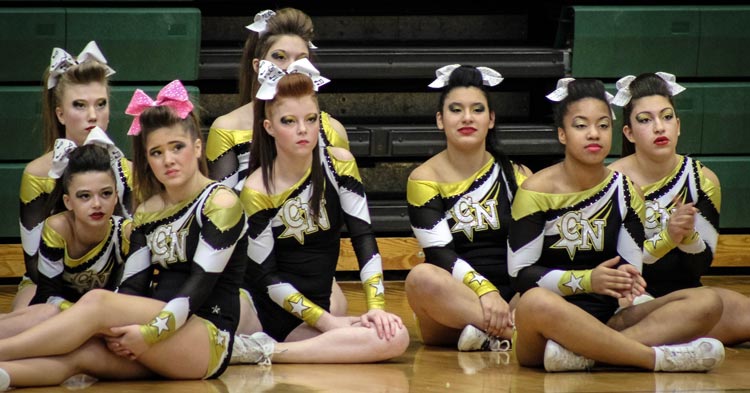By an 8-1 majority, the United States Supreme Court blocked a Pennsylvania school district from punishing a cheerleader for a profane off-campus, off-hours outburst on social media. Mahanoy Area School District v. B.L., _ S. Ct. __, 2021 WL 2557069, 2012 U.S. Lexis 3395 (June 23, 2021). The Court’s decision sets limits on how far a public school district can punish a student for off-campus speech. The decision applies only to state and local public institutions. Justice Breyer wrote the Court’s opinion. Justice Alito wrote a long concurring opinion with numerous examples of situations in which a school district either may or may not regulate student speech.
B.L. a high school student, was angry at not having been chosen for the varsity cheerleading squad or the softball team. B.L. felt that she had been rejected unfairly. She posted a Snapchat message including the “F-bomb” directed toward school, cheerleading, softball, and “everything”. The posting took place off campus and outside school hours. The posting did not identify B.L.’s school or any individual at the school. But B.L.’s Snapchat message went to other students, some of whom implicated her. The high school then suspended B.L. for a year from the junior varsity cheerleading squad.
B.L. and her parents sued to enjoin the school from barring B.L. from the JV cheerleading squad. The plaintiffs alleged that the School District’s actions violated B.L.’s First Amendment rights to freedom of speech. The School District lost before both the District Court and the Third Circuit. See Mahanoy Area School District v. B.L.,964 F.3d 170 (3d Cir. 2020). The Third Circuit held that the School District did not have the ability to discipline a student for off-campus speech that was outside school-owned, operated or supervised channels and that could not be reasonably interpreted to bear the school’s imprimatur.
After accepting the case for review, the Supreme Court upheld the lower courts and ruled in B.L.’s favor, with only Justice Thomas dissenting. Justice Breyer gave three important reasons for differentiating between the School District’s inability to regulate off-campus speech and ability to control on-campus speech. First, a public school district does not stand in loco parentis for school students who are away from campus. Put more simply, parents are usually responsible for children once classes end and the student leaves campus. (This factor differs for private schools where the First Amendment does not apply, and for private boarding schools where the school is recognized as being in loco parentis during the student’s tenure at the school .) Second, a school district’s regulation of both off-campus and on-campus student speech might lead to a situation where a student had no rights of speech at all. Third, the schools have an interest in promoting free expression, even if the communication is unpopular.
The Court held that the School could not show that the disruption to School operations warranted the suspension. Finally, in recognition of the apparent triviality of not making the cheerleading squad and the student’s distasteful comments, the Court stated, “Sometimes it is necessary to protect the superfluous in order to preserve the necessary.”
Notably, the Supreme Court sided with the student on narrower grounds than the Third Circuit. The Supreme Court did not agree that the schools’ power to regulate student speech always disappeared when the speech takes place off campus. Schools would still have an interest in regulating severe bullying or harassment, threats aimed at teachers or students, speech related to academic and lesson matters, and speech that created breaches of security.
